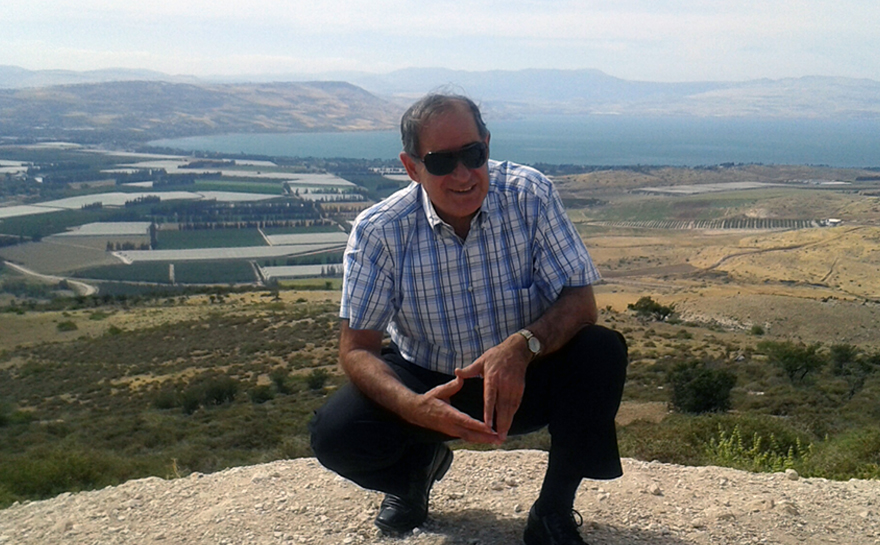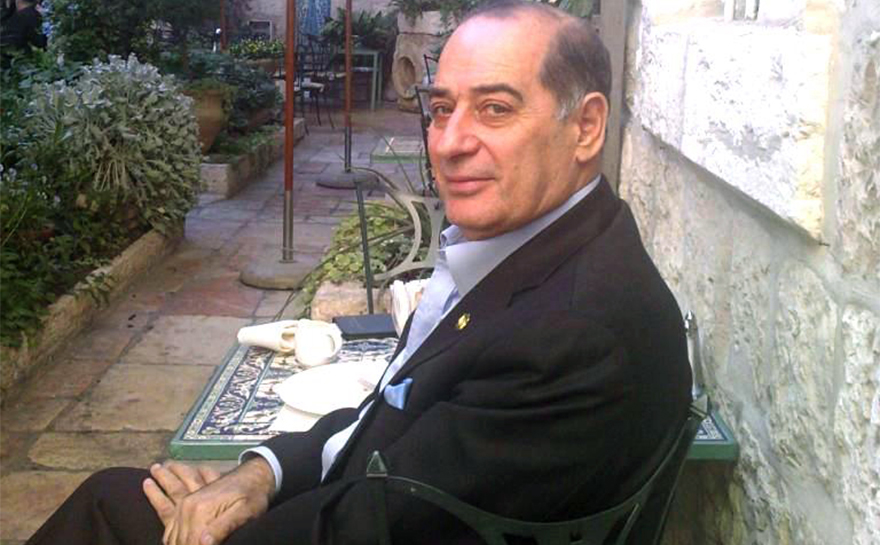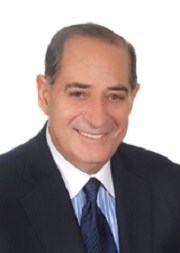
Lake-Tibrias-One-Mile-Away-May-18-2014

At-the-American-Colony-Hotel-in-Jerusalem-December-2009

Rajai R. Masri, CFA,
President
Ever since a child I harbored a dream to earnestly participate in the collective efforts, humble a contribution as could be, to entice one of the major blocks of humanity, the Arab masses and the Arab world, to join humanity in humanity’s march towards a sustainable better future and a better world.
Ever since a youngster, I relentlessly sought to engage in the efforts for the continuous betterment and improvement of our people with an enlightened vision and uncompromising subscription to the Universal Values of representative democracy, justice, freedom and the upholding of human dignity.
Interestingly, in this vein, I recall, as a youngster, developing very early consciousness of the ambitious projects of Pan Arab dreams aiming to improve the lot of the downtrodden masses through the promotion of the ideals of social justice as was exemplified in the secular doctrines of certain enlightening Arab movements.
As charity starts at home, as a middle-aged Arab and a Palestinian prompted by a deep sense of duty, I bewail the very bleak state that the Arab world has descended into. The Arab World currently finds itself wandering without a compass and a sense of direction; constantly wasting valuable scarce national resources; precipitously slipping into the abyss of backwardness and lost economic opportunities; continuously engaging in utterly wasteful and endemic internecine strife; rendered increasingly ineffective and irrelevant in the larger plain of humanity’s ambitious march to the future.
I decided to launch RRMASRI Research & Consulting Inc as a vehicle - humble and limited the existing resources of such an entity as they are - in order to act as a nucleus Think-Tank; a Strategic Research Center and a catalyst to gauge the way out and into the future for the Arabs and the Palestinian people.
This, in many ways comes natural for someone who is proud of having for long dedicated much of his time and energy to writing and commenting on issues pertinent to the Arab world and Global issues that are of wider public interest, impact and consequence.
I decided, in the formation of RRMASRI Research & Consulting as a duly registered Canadian Federal entity, to develop personal initiatives into more streamlined and institutionalized systematic endeavor to a high standard in order to maximize the impact and spread of the general benefits in the service of the advancement of higher noble purposes.
As someone who is well versed with the Arab history, the Arab cultures and the Islamic Religion; as well as the socio-political reality of the Arab world, the Palestinian society and the enduring endemic Arab-Israeli conflict;this, while simultaneously being deeply immersed in the Western culture gaining deep knowledge and insight into the intricacies of the Western culture and the Western mindset; I find myself in the rather privileged position to identify the comparative ills that are precluding the Arab world of embarking on meaningful sustainable socio-economic developments that would be much facilitated by openness and seamlessly connecting with the broader world cultures,joining with the other world nations in adherence to indisputable Universal Values.
The Arab world and the Palestinian society suffer from two major impediments preventing the Arab world and the Palestinians of freeing themselves from the yokes of the stale approaches in tackling national challenges and in joining the rest of humanity in the openness and in the march to a better future.
In Summary, the Two major impediments preventing the Arab world from seamlessly connecting with the rest of the world are, First, the Arabs’ inability to embark on a serious collective effort to Reforming Religion to answer to the modern age challenges; and, Second, the enduring Arab/Palestinian-Israeli conflict that remaining unresolved continues to provide fertile grounds for wasteful political opportunism and exploitative manipulations.
Religious Reform
In the past half a century, strict fundamentalist interpretations and exegeses dominated the Islamic Religion that tended to cause endemic crises in the Arab world and the constituent mosaic of the Arab sub-cultures. The rise of Islamic Fundamentalism and Religious Fundamentalism in general that find their roots in centuries old misinterpretations of Islamic heritage and historic narratives are creating a major barrier, a major disconnect with the rest of the world cultures and world civilizations.
The Narrow Fundamentalist Interpretations of religion render adherents of that religion more susceptible to influences of fanaticism, exclusivism, extremism and violence. Invoking Jihad, or fervor for the reconstruction of the Temple in Jerusalem, as nostalgic reminiscences of romanticized mostly mythical non-critically scrutinized past glory, and the inherent despondent illusions of answering to divine commands; all act to magnify misconceptions and misperceptions that ultimately find readily expression in violence and internecine strife.
However, it has long been the consensus among learned intellectuals in the Arab World that engaging in Religious Reform was the foremostquintessential priority for the Arabs to pull out of their political, economic and cultural stagnation and backwardness.
There always existed consensus among enlightened Arab thinkers - a few as they were through the different stages of Arab history - that Religious Reform was the foremost requisite towards the revival of the Arab world and the stemming out of the forces of fanaticism. Religious Reformers advocated open fresh approaches to subjectthe mounds of Islamic and Arab historical narratives to critical scrutiny and objective analysis.
Isolated initiatives for Religious Reform endeavors, mostly by individual scholars and reformers, resumed in earnest in the Arab World as early as the middle of the 19th century, nearly ten centuries after the long demise of the reformist Mu'tazila (Arabic: المعتزلة al-muʿtazilah)school that flourished and was brutally suppressed by Islamic Salafists, the Hanbalis, in Mesopotamia during the 10th century C.E.
An orphan movement for Islamic Reform resumed nearly a millennium later in the middle of the 19th century as spearheaded by a few thinkers lead by Jalal El-Din El-Afghani, Mohammad Abdu, Kassem Amin and Abdel Rahman Al-Kawakibi.Theywere lonely voices took to scholarly challenge the dominance religious establishment of the strict Salafi tradition.Cognizant of the misplaced role of religious dominance in society, led these pioneer thinkers and activists to embark on a project of Islamic Reform aided with a few published writings only for their efforts to be aborted with the expiry of their natural life within the span of a few decades. Their efforts at Islamic Reform were seriously undermined and challenged by the despondent countervailing traditional religious forces in control of power and a general illiterate public.
However, decades later, at the start of the twentieth century, scholars in the examples of Taha Hussein, Ahmad Amen,Ali-Abdel Razed and Ahmad Lutfi El-Sayed, to name a few, carried out, in a cautious tiptoeing fashion,the mantle of Religious Reform in an inhospitable environment of preponderant ignorance; pervasive illiteracy and the stifling dominance of the traditional Salafi Religious Establishment.Damocles Sword of accusations of blasphemy was always present, as an intimidating deterrence checking the attempts by religious reformers stepping outside the traditional line challenging the stifling monopoly over religion and religious exegesis of a deeply entrenched Salafi Religious Establishment.
The bold initiatives of the above mentioned scholar reformers in the early Twentieth Century were stemmed out right at the bud. Besides, the contributions of these thinkerswere restricted to the publication of a few writings that werenot made readily accessible to the wider public. Consequently,the writings of these reformers were coercively prevented from circulation under the threat of the accusations of breaking the tradition and the commitment ofblasphemy.
However, come the 1960s witnessed the ushering in of a whole new era of prolific scholarly writings and publications of Religious Reform materials by leading enlightened Arab thinkers. With the rise of the Secularist Arab Nationalist movements in the 1950s and the 1960s, a good number of Arab scholars of great universal thinking embarked on the relentless endeavor ofthe debunking of much of the religious and historic narratives much imbued in the governing epistemology that dominate Arabs’ public life and the shaping of the Arab mind.
Prominent Reform Scholars in the examples of Hussein Mroueh, Mohammad Arkoun, George Tarabishi, Jalal Sadek El-Azem, Hisham Juaet, Mohammad Shahrour, Hamed Zeid Nasr, Fatma El-Marnisi, Abdallah Al-Ourwi, Mohammad Abed Al-Jabri, Yusef Al-Siddik, Adonis, Ulfat Yusuf, Amad Usaid, Hisham Sharabi, to name a few, took the lead through critical scientific research in the publication of prodigious works and excellent well-documented scholarly research pertinent to Religious Reform. This new breed of religious Reformers embarked on a bold movement subjecting the Arab historic and religious narratives to critical scientific scrutiny. Their works came in defiance to the established versions that are deeply rooted in the traditional Religious Establishment’s interpretations as the uncontested dominant authority in control of the Arab mind.
Unfortunately, and despite the great contributions, prolific writings and legendary dedications of these Reforming Thinkers; however, their tremendous contributions remain scarcely accessible by the great majority of the public.
Logistical impediments, expense and the lack of creative communication approaches appear to be the main reasons for the continuing inaccessibility by the public of the huge research carried out and performed by thewide host of reformers succeeding in debunking much of the stale Salafi interpretations of Islamic teachings.
The valuable works by the abovementioned leading Arab Reformers remain mostly isolated and not readily available, gathering dust; not readily accessible to the wider Arab public who remain hostage and susceptible to the narrow interpretations and dictates of the dominant Salafi religious establishment.
It willbe RRMASRI Research & Consulting’s Cardinal Mission to ensure a wider accessibility and the enhancement of higher awareness by the Arab public of the works, presentations and contributions of Arab Religious Reformers contesting non-scrutinized historical narratives as related by the dominant Religious Establishment.
It is the main objective of RRMASRI Research & Consulting to popularize the works of the great Arab Reformers rendering their works more widely available, affordable and more readily accessible to the general Arab public.
RRMASRI Research & Consulting will endeavor to develop the organizational and the logistical framework to enhance networking, synergy and cooperation among scholars and entities carrying the mantle of Religious Reform. This, with the expressed purpose of causing a much wider participation of Arab constituencies in the debate relating to the debunking of some of the untenable religious and historical narratives. This could mark a strident step in setting in motion on an accelerated momentum basis of Religious Reform.
However, to ensure a wide dissemination of the scholarly Religious Reform works, RRMASRI Research & Consulting intends to ultimately deploy the latest modern methods of communication, foremost the internet and social media; documentation utilizing latest techniques in proven library science; enhancing networking among reform scholars and institutions; creation and organization of dedicated debate circles; the planning of seminars and the arrangement of media talk shows; even, ultimately, RRMASRI Research & Consulting publishing its own dedicated media platform.
Succeeding in engaging the Arab public in the debate for Religious reform is bound to ultimately start causing a more receptive audience to effecting Religious Reform and the development of a modern vision and the ultimate openness to constructive universal dialogue. Engaging in Religious Reform is the prerequisite for the Arab world to reconnect with the wider world and to set out on the track of freedom, meaningful socio-political and socio-economic developments; and the establishment of a genuine tradition of representative democracy.
Contribute to the fostering of a third way movement
Another major predicament seriously thwarting the development of the Arab World and the Palestinian Society is the lingering Arab/Palestinian – Israeli Conflict.
The Arab/Palestinian-Israeli standoff continues to cause continuing political & security tensions; strife; dissipation of energies; diversion of scarce intellectual and economic resources; loss of opportunities and the prevention of the evolution and revival of the Arab and Palestinian people.
The lingering Arab/Palestinian – Israeli conflict continues to provide the hegemonic foreign powers; local extremists and the religious fanatics on all sides with a wide-open field to operate; prolonging their exploitative dominance; holding hostage the Arab and Islamic mind with the end result of the diversion of scarce national resources at the expense of the welfare of present and future generations.
However, notwithstanding the truth of the horrible injustices befallen the Palestinian people as the result of the carrying out of the Zionist project, including the obliteration of national identity;long years of deprivation and humiliation living the life of dispossessed refugees; yet, this, nevertheless, justifiably warrants a pause, a soul search and collectively engaging in deep self-introspection to issue out of an endemic vicious circle leading nowhere.
This enduring State of Affairs warrants the contribution of a nascent Third Way movement aiming at breaking the impasse to ensure the deliverance of the Palestinian people with the ultimate establishment of a just and a durable peace to the benefit of all. This could never be assured with the same forces in place dictating the political agendas keeping the people of the region on all sides hostages,ensnared in the vicious circle of futile endless conflicts and enmities. Besides, notwithstanding the lingering deep pains of loss by the Palestinians that are so very difficult to overcome for one to contemplate any potential pragmatic resolution of the Palestinian-Israeli conflict and the erasing of deeply entrenched mutual mistrust;rendering most formidable and very discouraging the plans for peace and reconciliation; However, nevertheless, this ought not to prevent, but rather on the contrary render imperative, the encouragement of a political movement among enlightened Palestinians and non-Zionist Jews of coming together, thinking outside the box to ponder commitment and support fora movement espousing and promoting a Doctrine of secularism, liberalism and the harmonious cohabitation on the basis of full equal rights of all the citizens.
In essence, contributing to the enhancement of a Third Way Movement that espouses a plan of peaceful co-existence on the basis of restitution of rights; non-sectarian secularism; the creation of a civil society with abidance by the Rule of Law as applied equally, equitably and fairly on all citizens; remains the only viable long-term alternative to end the endemic and wasteful Arab/Palestinian – Israeli conflict in the interests of a lasting peace and for the prosperity of future generations of all the people of the Middle East.
However, and while the concept of a Third Way Movement and the potential realization of its secular, none-sectarian objectives seem far-fetched to accomplish as viewed from the optic of the current dismal state of affairs; yet, looking forward realistically into the future, the Third Way Movement’s doctrine seems the only realistic enduring plan to paving the grounds for reconciliation and the start of a serious, meaningful and a constructive dialogue to put a permanent end to the current endemic conflict between the Palestinians and the Jewish Israelis.
Furthermore, aThird Way movement spurred by enlightened Palestinian and non-Zionist Jewish intellectuals and political activists will, inevitably, contribute to enhancing world awareness of the Palestinians’ plight and garner sympathetic understanding of the Palestinians’ legitimate aspirations.
In Conclusion, and as the above tasks and endeavors,stupendous as they are, not easy to realizein the span of a few years or even an entire generation through the initiative of a single individual or even an institution; however, nevertheless, they are morally, ethically, humanely and patriotically incumbentupon people of conscience to embark upon to blaze the trail for people of goodwill of the posterity to follow and build upon.
Thus, if one succeeds in planting the seed, even a drop in the ocean, the effort is bound to ultimately bear fruits that render all efforts worthwhile, especially with all other alternatives reaching a dead end.
Rajai R. Masri, CFA
President
